Richard Clayderman's Coup de Coeur.
Feeling nostalgic indeed.
Saw a discussion among some Pianovers about Richard Clayderman, and suddenly thought of this piece - one of my all-time favourites.
If only my piano teachers had explained to me the purpose of scales and arpeggios all those years when I was learning the piano, I believe I would have taken to them with greater enthusiasm. But somehow none ever did ! It was only after I stopped learning the piano that I realized how important they were as finger exercises . So a message for all piano teachers: Explain to your students what these exercises are for and I'm sure you'll have an easier time getting them to practise them :)... See More
If only my piano teachers had explained to me the purpose of scales and arpeggios all those years when I was learning the piano, I believe I would have taken to them with greater enthusiasm. But somehow none ever did ! It was only after I stopped learning the piano that I realized how important they were as finger exercises . So a message for all piano teachers: Explain to your students what these exercises are for and I'm sure you'll have an easier time getting them to practise them :)
|
|
I think it's important to work on having both hands equally strong. Corrine did point out the boring aspect of it, which often discourages the student. Hahaha, not easy being a piano teacher. I... See More I think it's important to work on having both hands equally strong. Corrine did point out the boring aspect of it, which often discourages the student. Hahaha, not easy being a piano teacher. I wonder how a piano teacher can add it to the lesson plans without the kids screaming. ? |
|
|
How abt Czerny? |
|
|
Oh absolutely . The school of velocity :) |
|
|
Haha.. yes.. ? and I'm guessing his Art of Finger Dexterity isn't popularly explored by many. |
Was watching this VOD about the side of piano competitions usually unknown to most people - piano tuners' work
ps: video is only available for streaming till 29th May so do watch soon if you are interested to know ?
|
|
This is really great sharing!! I enjoyed the documentary so much! Hope they don't really take it off after 29 May 2017! That would be a pity. |
|
|
probably can download and reupload it to youtube to share here permanently but might be illegal :x |
|
|
Oh no.. it's no longer available! ? |
A question here regarding choice of rhythm for improvised arrangements:
Choosing between two rhythms to play a set of three notes as follows - playing them as a triplet, or as 2 dotted notes back-to-back.
ie: 2 dotted quavers followed by 1 quaver (or the quaver then 2 dotted quavers) vs playing them as a triplet.
What is the difference between them as such (rhythm apart)? To my understanding, playing the sequence as a triplet inspires a sort of 'equality' to the melody... See More
A question here regarding choice of rhythm for improvised arrangements:
Choosing between two rhythms to play a set of three notes as follows - playing them as a triplet, or as 2 dotted notes back-to-back.
ie: 2 dotted quavers followed by 1 quaver (or the quaver then 2 dotted quavers) vs playing them as a triplet.
What is the difference between them as such (rhythm apart)? To my understanding, playing the sequence as a triplet inspires a sort of 'equality' to the melody they produce; that is to say they are given equal emphasis. Whereas in comparison, by using the dotted rhythms one can choose to give emphasis to the dotted quavers. Apart from this, i cant discern any other notable difference in applying either rhythm.
Anyone have other insights with regards to this?
There is no Pianovers Meetup this coming Sunday, 20 Aug 2017.
We will be celebrating our first anniversary of Pianovers Meetup at 10 Square @ Orchard Central - Pianovers Recital!
#ThePianoSG #pianovers #PianoversMeetup... See More
There is no Pianovers Meetup this coming Sunday, 20 Aug 2017.
We will be celebrating our first anniversary of Pianovers Meetup at 10 Square @ Orchard Central - Pianovers Recital!
#ThePianoSG #pianovers #PianoversMeetup #PianoversRecital #announcement
I do have a question regarding arranging music that has been bugging me for a while. What exactly is arranging and how different is it from an actual composition of a song? My perception is that an arrangement is basically a version of a song that a player created. If it is wrong or if someone can give me an elaboration, I'd really love to hear it. Also, is there any way or any instance that an arrangement could be so different from the original composition that it can be considered a... See More
I do have a question regarding arranging music that has been bugging me for a while. What exactly is arranging and how different is it from an actual composition of a song? My perception is that an arrangement is basically a version of a song that a player created. If it is wrong or if someone can give me an elaboration, I'd really love to hear it. Also, is there any way or any instance that an arrangement could be so different from the original composition that it can be considered a composition on it's own? Thank you!
|
|
But in the real world of music, there are several pieces whereby their original versions weren't written for piano solo -they can be for the full orchestra, or for the pop band. So we need either... See More But in the real world of music, there are several pieces whereby their original versions weren't written for piano solo -they can be for the full orchestra, or for the pop band. So we need either professional arrangers to arrange them for piano solo playing purposes, or we arrange them ourselves. One example is Tchaikovsky's Marche Slave for the full orchestra. But for play-by-ear musicians like myself, I would rather arrange my own piano version for Marche Slave instead of playing by score on someone else's arrangement. For many pop music, sometimes we don't even have their original scores because the composers/arrangers don't prepare them. Instead, they are produced into their final audio forms (using arrangement software) straightaway. |
|
|
Your last question is a tricky one. There is a thin line among compositions, arrangements and improvisations. The acid test is really whether the main motiff (melody line or tune) is still... See More Your last question is a tricky one. There is a thin line among compositions, arrangements and improvisations. The acid test is really whether the main motiff (melody line or tune) is still recognisable. The arranger can add lots of ornaments to it to make it sound in a different style, but if the tune is still recognisable, we will still say it is an arrangement for that particular composition. But if it sounds totally different (we don't hear any glimpse of the original song's melody at all), that we can't even say this is an arrangement of that particular composition - so it is on its own (own original composition/arrangement). However, sometimes the case may not be so straightforward. For example, the arranger can retain the main melody notes, but arranges something completely original say for its long prolonged interlude. Nevertheless we will still recognise that this is an arrangement of the original composition. |
|
|
Woah....I didn't expect a whole essay, haha. But I do believe that my understanding on the concept is way better now. Though it might take me a while to understand everything, I do think it has... See More Woah....I didn't expect a whole essay, haha. But I do believe that my understanding on the concept is way better now. Though it might take me a while to understand everything, I do think it has been a great help that I appreciate a lot. Thank you! |
|
|
Haha, this is because you were asking one of the BIG questions in music, just like if anyone asks any of the 7 big questions in economics such as what causes inflation and what causes unemployment... See More Haha, this is because you were asking one of the BIG questions in music, just like if anyone asks any of the 7 big questions in economics such as what causes inflation and what causes unemployment, I'm sure the economics lecturer will answer longer than an essay! |
Pianovers Hours - Recital Registration
[Event details]
17 Jun 2017
6:30pm to 10pm
Bliss House
[Programmes]
1830 - 1900, Welcome and Introduction
1900 - 2000, Mini-Recital
2000 - 2030, Dinner is served. Speaker Sharing.
2030 - 2100, Recital Showcase
2100 - 2200, Open jamming and Socialising
*Free-flow of Drinks 1830 onwards
[Registration]
If you'd like to play for us a piece, register your interest by posting a... See More
Pianovers Hours - Recital Registration
[Event details]
17 Jun 2017
6:30pm to 10pm
Bliss House
[Programmes]
1830 - 1900, Welcome and Introduction
1900 - 2000, Mini-Recital
2000 - 2030, Dinner is served. Speaker Sharing.
2030 - 2100, Recital Showcase
2100 - 2200, Open jamming and Socialising
*Free-flow of Drinks 1830 onwards
[Registration]
If you'd like to play for us a piece, register your interest by posting a comment to this, with the following:
1. The title of the piece you want to play
2. The composer of the piece
3. The estimated playing time (e.g. 2m 20s)
[Additional Notes]
1. Registered players will play first, followed by non-registered players.
2. Each registered player has a maximum playing time of ~5min, not limited by the number of pieces.
3. For each Pianovers Hours, the list of registered players will be posted on our website, similar to Pianovers Meetup. Thus, you can build a performing profile over time.
|
|
Hi, I will be performing an original composition which is under 3mins. Seeya! :) |
|
|
Hi. I would like to play Flower dance by DJ Okawari. ~3-4mins. |
|
|
月亮代表我的心/童话 mashup 4mins |
|
|
4 hands you raise me up! 3mins |
There is no Pianovers Meetup
1. this coming Sunday, 18 Jun 2017, and
2. the following Sunday, 25 Jun 2017.
There is no Pianovers Meetup this coming Sunday, 28 May 2017.
|
|
Haha you shouldn't have given the answer straightaway! |
|
|
Lol. Ok, next one! |
Just completed the Mini-Recital on 32 pieces of classical works! In the future, would like to look for co-performers for future recitals. Genres could be Chinese Classical, New Age, Jazz and Siblings (blues, broadway, big band, ragtime, boogie-woogie), Marches & Patriotic Songs, Easy Listening, Soundtrack, TV & Jingles, Western Pop/Oldies, Asian Pop/Oldies or World/Folk/Ethnic/Traditional tunes!
Just completed the Mini-Recital on 32 pieces of classical works! In the future, would like to look for co-performers for future recitals. Genres could be Chinese Classical, New Age, Jazz and Siblings (blues, broadway, big band, ragtime, boogie-woogie), Marches & Patriotic Songs, Easy Listening, Soundtrack, TV & Jingles, Western Pop/Oldies, Asian Pop/Oldies or World/Folk/Ethnic/Traditional tunes!
|
|
Maybe even original compositions! =) |
|
|
Yes! |
|
|
ten q Mr Sng Yong Meng - founder of thepiano.sg. thru pianover meetup i get to know lots of piano expert... Mr Zensen Goh kb skill is excellent ^+^ |
There is no Pianovers Meetup this coming Sunday, 14 May 2017.
Let's discuss another highly divided topic in Music Aesthetics. In order for a piece of music to be regarded as highly aesthetic/beautiful (好听/优美 in Chinese), does it need to be infusing advanced music concepts or elements (please note that it isn't about being technically challenging such as having to run very fast passages, etc.), such as the use of advanced chords (over and above the basic ones), the deployment of good modulations and counterpoints, or the utilization of sophisticated... See More
Let's discuss another highly divided topic in Music Aesthetics. In order for a piece of music to be regarded as highly aesthetic/beautiful (好听/优美 in Chinese), does it need to be infusing advanced music concepts or elements (please note that it isn't about being technically challenging such as having to run very fast passages, etc.), such as the use of advanced chords (over and above the basic ones), the deployment of good modulations and counterpoints, or the utilization of sophisticated rhythms?
In other words, can very simple pieces (say only using three basic chords like I, IV & V) using the straightforward diatonic scale (and 4/4 time signature) without having any modulations can sound as nice and superior as those above?
|
|
Hi Zensen:) Really enjoyed your post. My own belief is that simplicity is its own beauty and and piece (or song) doesnt require all the complex rhythms, not-so-commonly-used chords etc etc. I seem... See More Hi Zensen:) Really enjoyed your post. My own belief is that simplicity is its own beauty and and piece (or song) doesnt require all the complex rhythms, not-so-commonly-used chords etc etc. I seem to prefer a clear, "pure", and accessible melodic line and accompaniment rather than one with complex devices. I think that a perfect example of "simple yet beautiful" music is Mozart's music. The melodic lines of his works are clear and accessible (for sure) but yet this is something alluring in his music to the point it almost mysterious! Allow me to quote pianost Artur Schnabel who once explaimed:" Mozart's sonatas are too easy for children, too difficult for (serious) artists" |
|
|
Hi Zhi Yuan, I'm glad to hear your viewpoints on this! Proponents of your school of thought also cite traditional folk music which are so simple and yet so beautiful! For example, who doesn't like... See More Hi Zhi Yuan, I'm glad to hear your viewpoints on this! Proponents of your school of thought also cite traditional folk music which are so simple and yet so beautiful! For example, who doesn't like Home on the Range? |
Since ThePiano.SG introduced the weekly Pianovers Meetups nine months ago, it has become a much-anticipated gathering for piano lovers.
The Meetups are all about bringing together people with a passion for piano and music, to bond with one another and to enjoy music together. Every week, without fail, Pianovers meet at the URA Centre for four hours and enjoy a mini-recital and an open playing session.
This week, however, Pianovers had a surprise in store for them, when world-... See More
Since ThePiano.SG introduced the weekly Pianovers Meetups nine months ago, it has become a much-anticipated gathering for piano lovers.
The Meetups are all about bringing together people with a passion for piano and music, to bond with one another and to enjoy music together. Every week, without fail, Pianovers meet at the URA Centre for four hours and enjoy a mini-recital and an open playing session.
This week, however, Pianovers had a surprise in store for them, when world-renowned pianist Adam Gyorgy graced our session. Adam had gotten to know about our Pianovers Meetups and wanted to join us. We could not have been happier to host Adam. This was a truly memorable session for everybody present.
[Event]
Pianovers Meetup #33, with Adam Gyorgy
09 Apr 2017
It was a very distressing moment, then, when in April 2007, an Austrian-made Bösendorfer grand piano found its way onto a set of granite steps. The GBP26,000 (SGD78,000 in then’s terms) instrument was being delivered to its new owners at Devon in southwest England, when accident struck.
Since ThePiano.SG introduced the weekly Pianovers Meetups nine months ago, it has become a much-anticipated gathering for piano lovers.
The Meetups are all about bringing together people with a passion for piano and music, to bond with one another and to enjoy music together. Every week, without fail, Pianovers meet at the URA Centre for four hours and enjoy a mini-recital and an open playing session.
This week, however, Pianovers had a surprise in store for them, when world-... See More
Since ThePiano.SG introduced the weekly Pianovers Meetups nine months ago, it has become a much-anticipated gathering for piano lovers.
The Meetups are all about bringing together people with a passion for piano and music, to bond with one another and to enjoy music together. Every week, without fail, Pianovers meet at the URA Centre for four hours and enjoy a mini-recital and an open playing session.
This week, however, Pianovers had a surprise in store for them, when world-renowned pianist Adam Gyorgy graced our session. Adam had gotten to know about our Pianovers Meetups and wanted to join us. We could not have been happier to host Adam. This was a truly memorable session for everybody present.
Watch the Live Interview we had with Adam.
Did you know that Happy Birthday had been arranged in different genre-versions? Give the following a listen and you won't stop laughing. While my first student loves the New Orleans version the most, my favourite is the final Hungarian Version! What about you?
|
|
This is awesome! What makes you like the Hungarian version most? |
|
|
Maybe lately I've been listening to lots of Hungarian traditional tunes and have identified some common styles among them; and the way the Hungarian version is arranged has captured that exact... See More Maybe lately I've been listening to lots of Hungarian traditional tunes and have identified some common styles among them; and the way the Hungarian version is arranged has captured that exact style so aptly! |
|
|
In yesterday's Adam Gyorgy concert, he played Liszt's "Hungarian Rhapsody No. 2" in one of his encores - and we know Liszt was very heavily influenced by Hungarian Folk music! |
|
|
Yes, exactly, and so is Brahms! |
Musical Instruments Museum is the largest instrumental museum in the world (in Arizona, USA) whereby instruments are displayed geographically by continents and sub-continents. Its size is as big as Suntec City.
I've recently discovered that we can in fact perform a COMPREHENSIVE virtual tour of its entire museum (try it, can be addictive for several hours) simply via Google Maps!
And it is deadly accurate because we do see the Banjo and Sousaphone in USA, the Musette accordion... See More
Musical Instruments Museum is the largest instrumental museum in the world (in Arizona, USA) whereby instruments are displayed geographically by continents and sub-continents. Its size is as big as Suntec City.
I've recently discovered that we can in fact perform a COMPREHENSIVE virtual tour of its entire museum (try it, can be addictive for several hours) simply via Google Maps!
And it is deadly accurate because we do see the Banjo and Sousaphone in USA, the Musette accordion in France, Highland Bagpipes in Scotland, Mandolins in Italy, Tárogató and Cimbalom in Hungary, and the Shakuhachi and Shamisen in Japan and many more!
Remember to use your desktop PC (so that we can use the scroll button at the centre of our mouse to navigate) instead of your smartphone to best enjoy the tour!
|
|
Wow, didn't know Google Maps can take you on a virtual tour of a place like that!! =)!! The words on the wall, and those in front of the exhibits to explain them, are too small to see,... See More Wow, didn't know Google Maps can take you on a virtual tour of a place like that!! =)!! The words on the wall, and those in front of the exhibits to explain them, are too small to see, though. |
|
|
That's why. How I wished in the near future, the resolutions are higher! |
|
|
That's interesting, great for an ethnomusicology lesson. |
|
|
Yes, or a music lesson infusing ICT in commemorating International Friendship Day! |
Someone has recently raised the subject matter on the improvisatory nature of baroque and classical period composers. Many of them were in fact improvising AS THEY WERE composing. But they only (largely) documented ONE VERSION of their improvisation, which is the score archived till today for others to play. There are larger implications to music and music education, which many disagree with me. So far few people (e.g. Dr Leonard Tan, conductor of the Singapore National Youth Symphony... See More
Someone has recently raised the subject matter on the improvisatory nature of baroque and classical period composers. Many of them were in fact improvising AS THEY WERE composing. But they only (largely) documented ONE VERSION of their improvisation, which is the score archived till today for others to play. There are larger implications to music and music education, which many disagree with me. So far few people (e.g. Dr Leonard Tan, conductor of the Singapore National Youth Symphony Orchestra) agree with me.
The implications are: Why must we be having to have the DOGMA of having to play every single note (dictated on the documented score) to the last letter WHEN the composer himself could have used a slightly different set of notes if he had written the score using another improvised version of his work?
And it is exactly this dogma, passed through the centuries and generations, that the general conventional music fraternity is holding dearly to. Don't get me wrong - this definitely has its important purpose which we need to maintain. I'm more referring to the general player who simply wants to appreciate and enjoy playing classical music (not joining an orchestra or be a concert pianist) - why must they choose the "only" route on score-reading?
If we can embrace improvised versions of Mozart's Symphony No 40 in jazz version and Mambo version, wouldn't it be strange then, that we ask FOR THE SCORES for these versions? [That we want to rely on a precise score to play EVEN an IMPROVISED version of a work!] See the logical fallacy here?
|
|
" .. when the composer himself could have used a slightly different set of notes if he had written the score using another improvised version of his work ... " At the end of the day, would... See More " .. when the composer himself could have used a slightly different set of notes if he had written the score using another improvised version of his work ... " At the end of the day, would the composer still choose a final version he wants the audience to hear as the definitive? For example, when you hear a recording published by the composer, would it be reasonable to conclude that, while he had tried many versions / many improvised versions of his work; he will still choose one definitive to be shown to the public? |
|
|
Hmm, I would say it is a combination of yes and no. Someone recently mentioned the cadenza issue, which would shed some lights to it. As a classical composer myself, coupled with some of my other... See More Hmm, I would say it is a combination of yes and no. Someone recently mentioned the cadenza issue, which would shed some lights to it. As a classical composer myself, coupled with some of my other classical composer friends, though there is a "final version" of our works which we would set on it (and document it), we feel we are quite fine if some of the "less important notes" (e.g. the way to produce or sound out the chords at certain junctures) are changed slightly, since it won't affect its overall musicality. But once they change things that are more pivotal (such as our counter melodies), then it is a strict no-no. But having said that, there are other composers who would want 100% conformance of playing w.r.t. to what they have written precisely. |
|
|
"... though there is a final version of our works ... quite fine if some of the less important notes are changed slightly ..." Since there still has to be a final version delivered to the... See More "... though there is a final version of our works ... quite fine if some of the less important notes are changed slightly ..." Since there still has to be a final version delivered to the public, it would best represent what the composer truly wants. Otherwise, if he has felt that a slight change in some of the notes would suit better, he would have chosen that as the definitive piece. Thus, the published piece contains the intricate musical qualities, and emotions, among other collaterals; that the composer wants the world to hear and feel it. He might hope that this song would be played in its entirety to preserve his intentions. If he has wanted other variations, he might publish his works in variations. For example, Mozart's Twelve Variations on "Ah vous dirai-je, Maman". What the future generations would perform, is something the composer cannot predict. Musicians now can perform it in its truest form, or improvised form, and whether it can be accepted depends largely on the current state of musical taste among the population. |
|
|
At the end of the day, would it boil down to who decides which is part of the composer's authoritative / canonical works, and which is not ? The publisher of the works, the patron, a panel, the... See More At the end of the day, would it boil down to who decides which is part of the composer's authoritative / canonical works, and which is not ? The publisher of the works, the patron, a panel, the composer himself ? Is it a matter of power ? |
While most people would ignore the following "contrasting videos", Dr Eugene, the Head of the Music Department at the National Institute of Education (NIE) was most intrigued by it! Would like to hear your comments, please!
What makes one piece of music "beautiful", "captivating", "catchy", "moving", "memorable" etc, but not another piece of music?
(Pop music composers often talk about this "musical hook" that makes a song captivating .)
How does the mind decide what's a musical hit and what isn't?
|
|
But I am still interested to hear about the quantitative method that Zensen spoke about. |
|
|
Pardon me; as I've been reminded by my Master Trainers and potential investors about this; it is better that I run through all the various schools of thoughts in determining aesthetic quality via... See More Pardon me; as I've been reminded by my Master Trainers and potential investors about this; it is better that I run through all the various schools of thoughts in determining aesthetic quality via my talk. But in order not to whet your appetite too much, I will share the 4th school here, which is easier, reserving the 2nd school (quantitative method) at the talk, since it is rather sophisticated, requiring graphs and diagrams, etc. The 4th school of thought hinges on the notion of nostalgia. There has been extensive research done on this field: Generally, people tend to like music that they listen to a lot during their late teens to young adulthood (20s), thereby finding these songs highly aesthetic. For example, my mum would feel pop songs in the 50s and 60s very appealing and beautiful, while those in my generation (80s and 90s) are no good. Interestingly, by the same token, I will have the tendency to find pop music in the 80s and 90s to be superior, and current hits are degenerating. Teens will feel otherwise! The researchers attribute this to the phenomenon that during teenage and young adulthood period, we are most impressionistic about the music media we expose to, attaching lots of sentimental values to them, etc. However, as we grow older, many of us will be focusing more on developing our career, starting a family, etc. leading to the situation whereby we listen less to popular music thus feeling less receptive to the "new culture" or style. There are several implications for this school of thought. For example, if we are organising a concert meant to let our audience indulge and enjoy the pieces, and if we know our audience are all around the age group of 70s and 80s, then probably we will choose our repertoire of oldies in the 50s and 60s (instead of say in the 80s). |
|
|
So Corrine is right at the micro-level sense. But once we extend it to the macro-level, it will be a case of being beyond Person's A subjectivity vs Person B's subjectivity. Case in point: I am... See More So Corrine is right at the micro-level sense. But once we extend it to the macro-level, it will be a case of being beyond Person's A subjectivity vs Person B's subjectivity. Case in point: I am about to go overseas (together with a team of others) for an exchange programme at their music fraternity. And I am supposed to select a few pieces of Singaporean works that are aesthetic to perform there, so that it will well represent the cultural superiority of Singapore. What should govern my choices? If I simply go by my personal subjectivity, that's it. It will ruin everything. Why? For example, I personally don't like the melody of Home, but this will probably go into my repertoire because of several reasons (taking into consideration on other schools of thoughts in determining aesthetics beyond my personal subjectivity). Thus the discipline or study of Music Aesthetics has widespread practical applications. It doesn't stop at personal subjectivity differences. It goes into factors that shape mankind's individual subjectivity (one of which is nostalgia). |
|
|
Amazing! |
If you have a toddler niece/nephew whom you truly dote on, you might wish to consider getting them this Korg Tiny Piano at their 1st, 2nd or 3rd birthday - it costs only $200+ and is extremely small and light (doesn't take up much space). It operates either with batteries (which thus can be played at the bedside) or AC power, and has 4 colours to match surrounding furniture. It has good acoustic piano sounds, as well as toy piano sounds! Can also perform octave shifts and many more!
... See More
If you have a toddler niece/nephew whom you truly dote on, you might wish to consider getting them this Korg Tiny Piano at their 1st, 2nd or 3rd birthday - it costs only $200+ and is extremely small and light (doesn't take up much space). It operates either with batteries (which thus can be played at the bedside) or AC power, and has 4 colours to match surrounding furniture. It has good acoustic piano sounds, as well as toy piano sounds! Can also perform octave shifts and many more!
|
|
Nice. I only have the Kawai toy piano (which sounds more like a xylophone). Maybe I should get this as well. |
|
|
Yes, you can either get it from City Music or the music shop at the top floor of White Sands Mall. |
|
|
This is different from the Kawai one you mentioned, right? |
|
|
Yes, the Kawai one is strictly acoustic, and the sound is like a glockenspiel. But this is electronic. |
As a piano newbie and novice, i learned piano by myself. I usually play by ears and memorization. Recently i play some songs and recorded it. i realised certain part of the songs the speed(Tempo) is not ideal. It could be a bit too fast or slow and as a result sounds a little bit messy. How do your play a song in an ideal speed (Tempo) and "Control" the whole songs seems like a hard skills to master. Any thoughts?
As a piano newbie and novice, i learned piano by myself. I usually play by ears and memorization. Recently i play some songs and recorded it. i realised certain part of the songs the speed(Tempo) is not ideal. It could be a bit too fast or slow and as a result sounds a little bit messy. How do your play a song in an ideal speed (Tempo) and "Control" the whole songs seems like a hard skills to master. Any thoughts?
|
|
How about adding some percussion (like a steady drum beat) to your playing if you're using a digital piano? Learners of classical music usually use a metronome to help control the tempo. |
|
|
That's a nice suggestion for someone using the digital piano, since the percussion becomes an actual accompaniment to his playing. At least, it is not as monotonous as a metronome for... See More That's a nice suggestion for someone using the digital piano, since the percussion becomes an actual accompaniment to his playing. At least, it is not as monotonous as a metronome for those playing on the acoustic piano, where the metronome has no musical participation, and it's purely for keeping the tempo in check. |
|
|
Thanks for the insights and ideas. I am currently using acoustic upright piano. I also think that when you play the piano your mind need be calm and at peace and most likely you will get the '... See More Thanks for the insights and ideas. I am currently using acoustic upright piano. I also think that when you play the piano your mind need be calm and at peace and most likely you will get the 'right' tempo. |
|
|
There are apps that can provide different kinds of drum beats in varying speeds to accompany your playing. So it doesn't have to be a boring metronome beat. Yes Theng Beng, when we are... See More There are apps that can provide different kinds of drum beats in varying speeds to accompany your playing. So it doesn't have to be a boring metronome beat. Yes Theng Beng, when we are nervous, our hearts beat faster and we tend to play faster. |
After Joseph played Für Elise by Beethoven, a small snippet of trivia about "The Mysteries Behind Beethoven’s Für Elise" was shared - Beethoven probably never wanted the version which is popularly played today to exist, and would have preferred the 1822 version instead. Neither was there a person by the name "Elise".
#ThePianoSG #pianovers... See More
After Joseph played Für Elise by Beethoven, a small snippet of trivia about "The Mysteries Behind Beethoven’s Für Elise" was shared - Beethoven probably never wanted the version which is popularly played today to exist, and would have preferred the 1822 version instead. Neither was there a person by the name "Elise".
|
|
Yes!!! Hehehe, thanks for allowing me to crash course the workshop! As someone who went through the 'tao geh' learning, I find it very difficult to improvise and find the appropriate chords to... See More Yes!!! Hehehe, thanks for allowing me to crash course the workshop! As someone who went through the 'tao geh' learning, I find it very difficult to improvise and find the appropriate chords to convey the right 'nuance' (like you mentioned in class). The materials mentioned in class will definitely help with my self-study and jamming in class made it real fun too! Thanks again!! |
|
|
Am delighted that you enjoyed it and finding it useful! The 3rd and final session will be next Thursday! |
|
|
During office hours again ? |
|
|
Yes, all three are from 2.30pm to 5.30pm. |
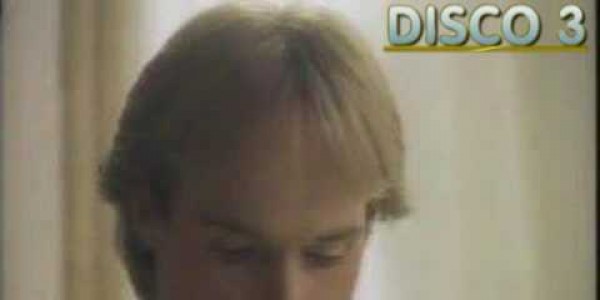
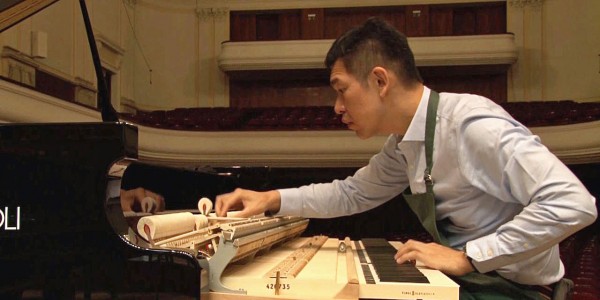
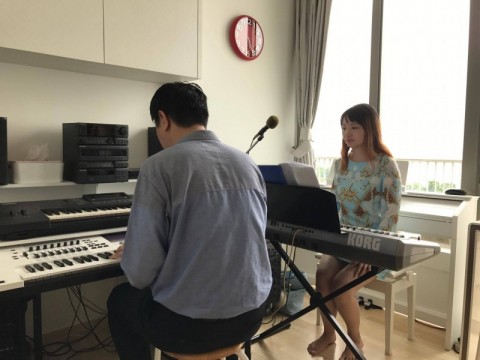
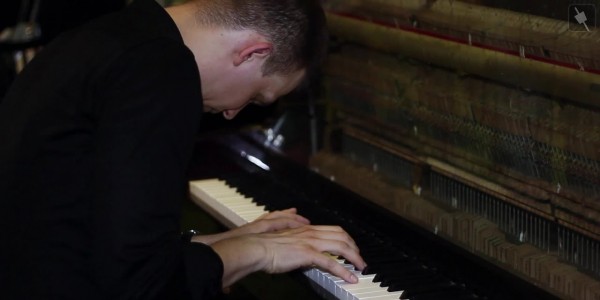
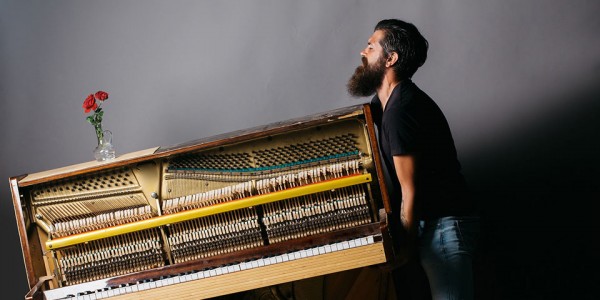
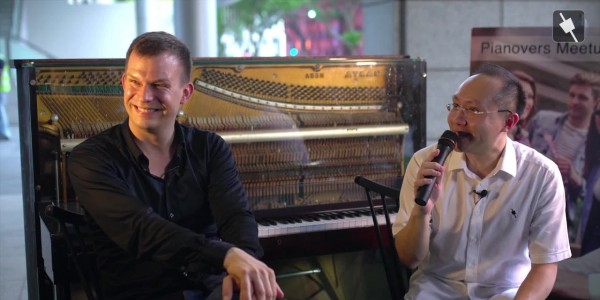
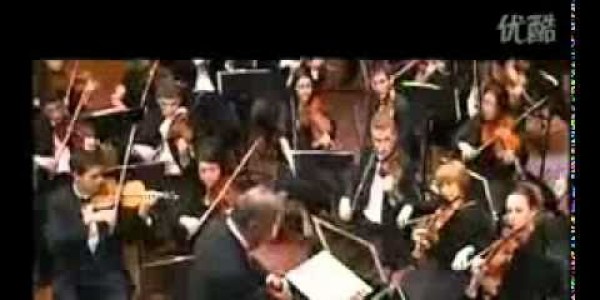


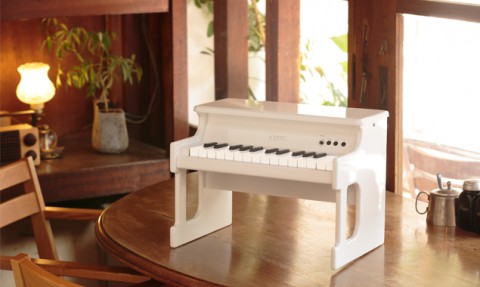

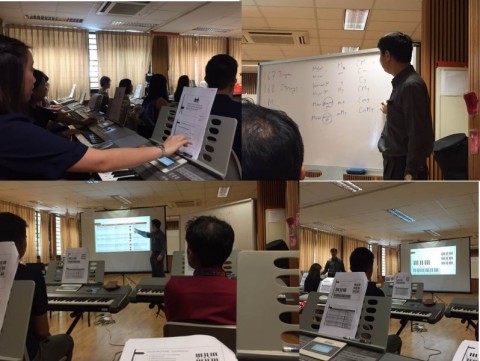
Lovely piece!
The first time i hear this song i dont think much about it. The 2nd time i hear it, got some feelings, after 3rd hearing the tune keep lingering in my minds and now i am hooked.
Wow! Didn't know abt this piece. Nice to know!!